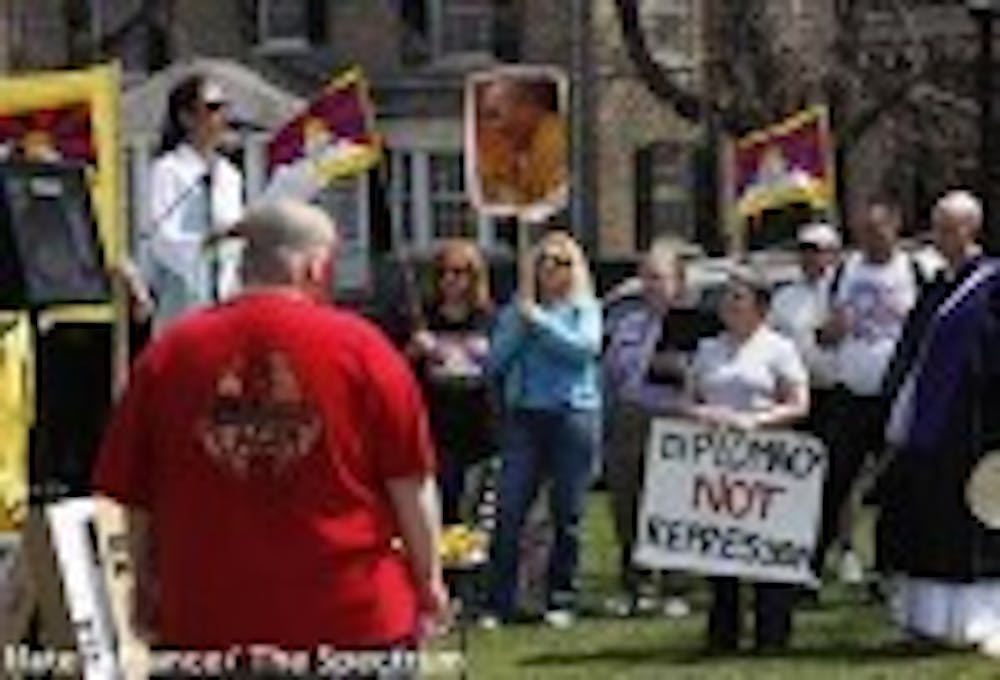Editor's note: this commentary piece provides a first-person account and opinion of an event.
With the sun beating down hard on Elmwood Village, I walked along a strip of lush green grass down the center of Bidwell Parkway. My anticipation for the Tibetan solidarity march, taking place during the hottest time on Saturday, was fed by the ripe talks of freedom.
"A lot of people are suppressed [when they do] not have freedom of expression and religious freedom and all the basic fundamental freedoms that we have here," said Kunchok Youdon, a graduate student in political science, Tibetan refugee and co-organizer of the march.
Among the still-leafless tress, a temporary stage was set up for speakers to share their experiences. Tibetan flags and posters of the Dalai Lama swirled in the light breeze. About 50 people were hustling and bustling around, sharing stories of suppression and the potential for Tibetan independence.
As people of all ages and cultures scattered the lawn, I began to realize the magnitude of the situation - the current violence in Tibet is only one example of repression in the world.
"This is not about Tibet in itself," Youdon said. "It's about Darfur...and Burma - a lot of people have been killed there."
Pictures of violence taking place in Tibet were displayed on poster boards around the lawn. One in particular gave my heart and stomach a twist. The caption read, "Tibetan protestor shot dead, March 16, 2008."
Yet the quiet twang of eastern music coming from the speakers calmed my spirits. The feelings of hatred that shot through my inner core quickly turned to compassion; I wish I could provide the freedoms that I have to people around the world.
"Thank you to each and every one of you for taking the time out from your busy hectic schedules...to lend your eyes, your ears and your voice for another human being just like you, who do not have the luxury of freedom," said Dechen Dolkar, a Tibetan refugee and co-organizer of the march.
Martin McGee, a Buffalonian who has visited Tibet, shared a brief synopsis of the Tibetan-Chinese conflict from the stage. In early March, a group of Buddhist monks left their monastery in the Tibetan capital of Lhasa. The monks were arrested, which "sparked a series of demonstrations," according to McGee.
"It essentially exploded on the streets on Lhasa, after 49 years of frustration, with virtually no progress at all in terms of human rights," McGee said.
It's been 49 years of having an issue unresolved and the violence is just starting now? This is where my cynicism escapes thought and comes out in words: why are they protesting now?
"This has been going on since 1959. It didn't come out during the Olympics. It's been going around all over the world," Youdon said.
While she has never been to her family's homeland of Tibet, Youdon said she has been active for the small nation since her childhood. At the same time, I know that the Olympics are purely a tool to get international attention.
"The Olympics are about peace [and] unity," Youdon said. "On the other hand, [the Chinese] are killing people, which is not what the Olympics represent."
Some of the final words from the stage were those of hope:
"Let's march for every human being that's deprived of freedom," Dolkar said.
As the mass of compassionate, freedom-loving people marched down Elmwood Avenue under the hot, spring sun, an American student rhythmically yelled, "This is what democracy looks like."





